Here Comes Mr. Jordan (1941)
“I know I don’t look like Joe, but I’m him just the same!”
|
Synopsis: |
|
Genres, Themes, Actors, and Directors:
Response to Peary’s Review: In his review, Savant aptly describes the film’s “optimistic and uplifting message” as follows: “the human soul is a wondrous thing that lives after us, even if it takes new forms and new identities”, and “our essential goodness will be passed on to those that follow”, given that “love doesn’t die with one’s mortal body”. Even for hard-headed cynics like myself, this message is simply too appealing not to want to believe — and thus, I gave myself over to the story. To that end, I appreciated the care taken to resolve the undeniably tricky dilemma of Montgomery’s character supposedly inhabiting new bodies while WE still see Montgomery himself; appropriately enough, other players in the “outstanding supporting cast” are given ample time to adjust to the astonishing truth of Montgomery’s bodily inhabitance — most notably James Gleason as a cynical manager who takes some convincing that his former boxing champion now resides in a wealthy financier’s body. Peary accurately notes that Montgomery is “perfect as [boxer Joe] Pendleton”, but I can’t quite agree with his assertion that “Rains’s role should have been stronger”. I was actually quite impressed by how seamlessly the screenplay incorporates his presence in a story that really should be all about Pendleton. Yet I wasn’t especially enthused by Rains’s performance here. He’s certainly competent, and projects just the right amount of avuncular wisdom, but — perhaps strategically? — he’s simply not very charismatic. Meanwhile, Evelyn Keyes (probably best known for playing “Suellen” in Gone With the Wind) gives a delightful performance in a minor yet essential role as the woman who inspires Montgomery to give Farnsworth’s body a try; it’s a joy to watch her slowly learning to trust, and then love, the man who once caused her indescribable grief. Redeeming Qualities and Moments:
Must See? Categories
Links: |
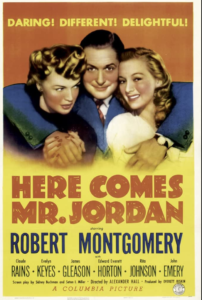
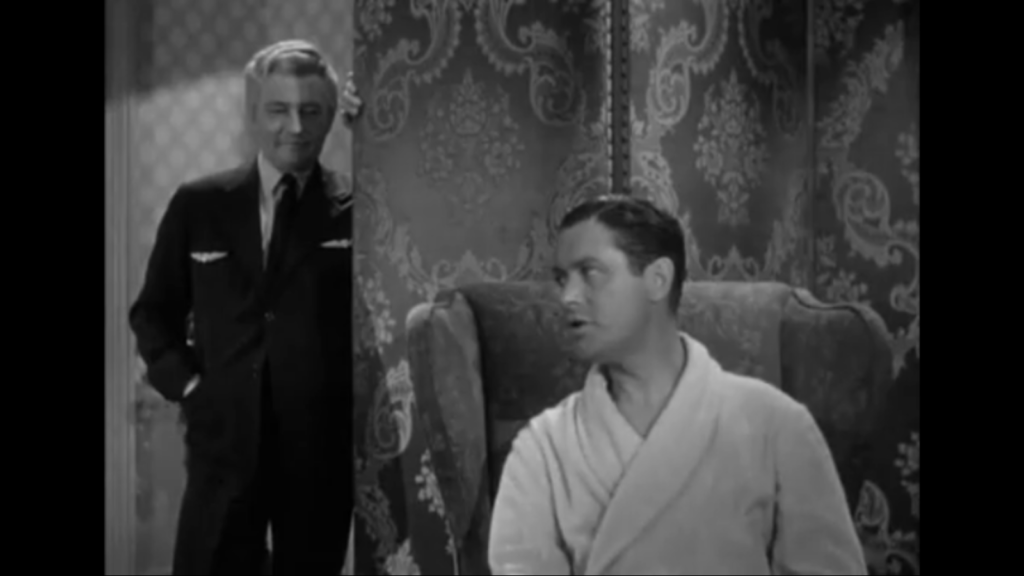
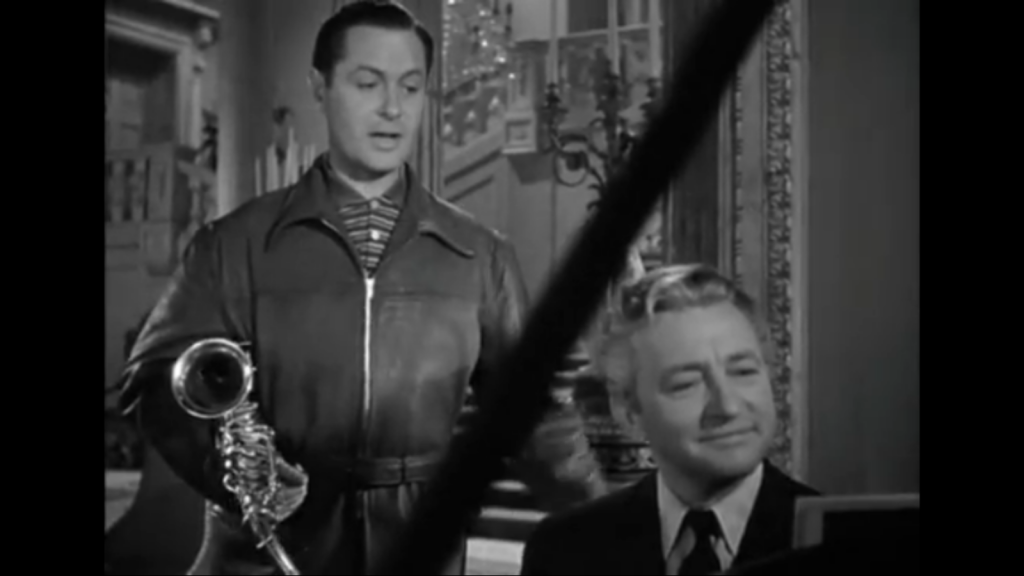
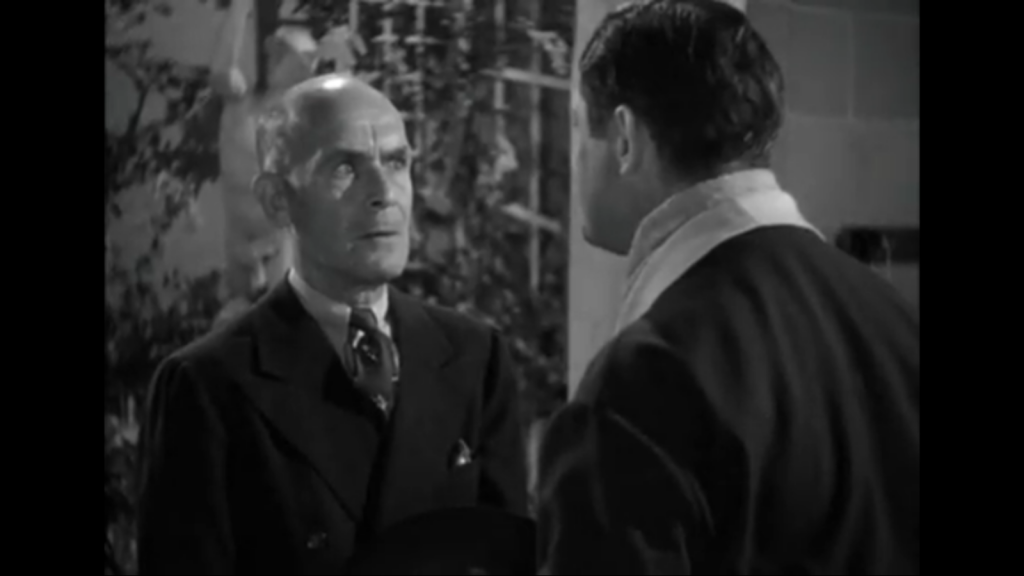
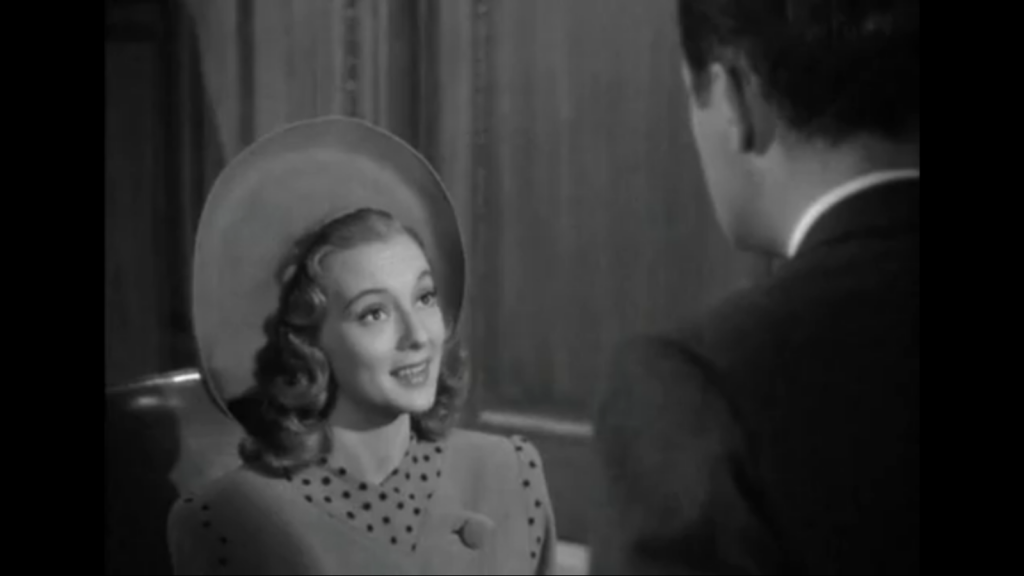
One thought on “Here Comes Mr. Jordan (1941)”
While revisiting this for the first time in many years (this is a film I never go back to), I first thought of deeming it a once-must. But, as the film continued, I found I can’t do that. I know it’s held in high regard by many – and I can actually see why (it’s served up reasonably well) – but, at the same time, I think it’s overrated as a classic.
‘HCMJ’ is one of only a few of director Hall’s 44 films that are ever spoken of much. While his work in it is competent, I wouldn’t say it’s particularly distinguished. Like the film’s far-fetched script, Hall appears to be trying a little too hard. And, like the script, Hall has a tendency to overstate his points.
For roughly the first third of the running time, the script is lazy and repetitive in setting up its premise. The protagonist is told more often than is necessary not only that he is dead but that he can see those still alive, although they can’t see him. (This idea of who can see who when later ends up being a real burden on the story in general, since it will require much time spent on people doubting their own or each other’s sanity.) The problems don’t stop there: when Montgomery’s spirit goes from being a boxer to a wealthy businessman, very little is made of the fact that the businessman is *not at all* acting like himself. (Sure, there’s a passing remark about the businessman going “mad”, but certainly those closest to him would immediately realize that the major makeover in this wheeler dealer’s character is much more than just a sudden change of heart; his former self has been replaced by something along the lines of a thug – yet people don’t hook into that.)
In the film’s defense, it may simply be the kind of entertainment in which we are being asked to – as the assessment says – give over to the fantasy of it all, for the sake of its comedic potential. But, for me, therein lies another problem. I just don’t find it very funny…or particularly uplifting in its ‘spiritual’ message.
Even though I was resisting the film this time around, the following occurred to me: my feeling may have been different if the boxer had not been presented in such a stereotypical manner (i.e., leaning on the dumb side). If he were revealed to have more genuine street smarts and could himself play into the farcical situation in a more knowing manner, his character (and the film) could perhaps be much more entertaining. As it is, Montgomery actually comes off miscast to me; he exudes too much intelligence for what he has been asked to play.
And, because everything in the film hinges on Montgomery’s character, I don’t find myself caught up much with the supporting cast. They do OK work – but they’re like the film in general: everything is mildly diverting, as a somewhat pleasant, missed opportunity.